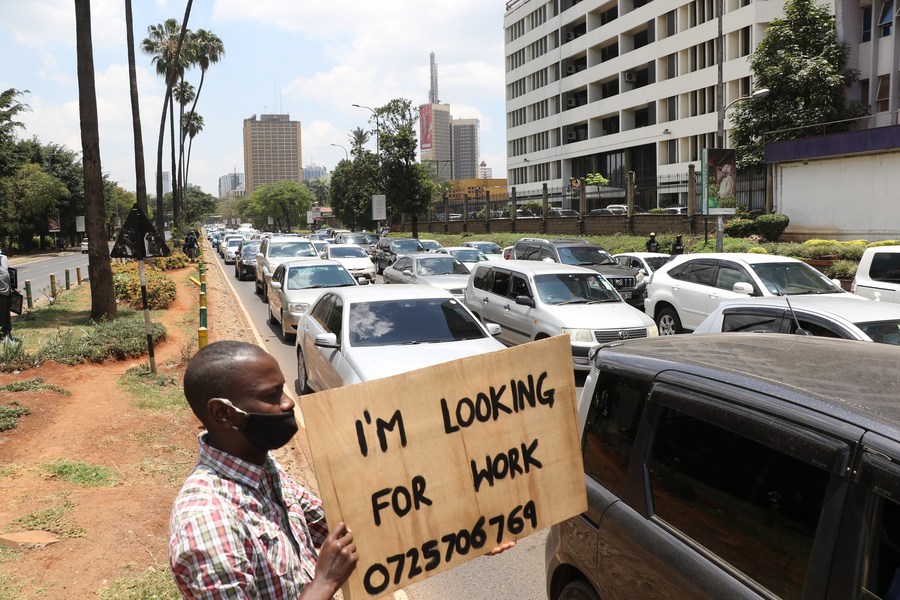
Tax cuts cushion Kenyan workers from COVID-19 shocks

When Nairobi resident Simon Kamau received his September salary a week ago, one thing stood out for him.
He had some 5,000 Kenyan shillings (about 46 U.S. dollars) on top of his actual earnings, which he would use for household shopping.
The money was courtesy of tax cuts instituted by the government in April after the outbreak of COVID-19 in the East African nation to protect workers from economic shocks brought about by the disease.
The tax relief targeted workers in both formal and informal sectors as well as big corporations and small businesses.
On September 26, Kenyatta prolonged the tax cuts to January 2021 to protect businesses and workers, extending relief to thousands of households.
“The 5,000 shillings on my salary makes a huge difference because my pay was slashed by 30 percent by my employer. It is something that I always look forward to,” said Kamau, a media worker.
His reprieve is shared by thousands of other workers across the East African nation whose pay was reduced by between 5 percent and 50 percent as companies strived to stay afloat.
However, some workers were not lucky as they were sacked as companies shut down or downsized to survive. About one million people lost their jobs due to COVID-19 effects, according to the Federation of Kenya Employers.
“I am happy with the tax relief because I am earning my full salary without taxes for the first time in many years,” said Andrew Mukhwana, a security guard in Kitengela, south of Nairobi.
Mukhwana, who earns about 185 dollars is getting his full pay, minus only the statutory deductions of about 4 dollars.
While the government will lose some 1.6 billion dollars in revenue during the period in the foregone taxes, according to National Treasury secretary Ukur Yatani, analysts noted the tax relief is a boon to workers, small businesses and corporations at a critical time.
“The tax measures put money in people’s pockets, boosting their spending power at a time many would have suffered. It is the reason some jobs were spared and others even created because firms were cushioned,” said Ernest Manuyo, a lecturer at Pioneer Institute in Nairobi.
As economic activities pick up in Kenya, most companies are yet to revert to the full salaries for their workers as they still cope with the effects of COVID-19.






